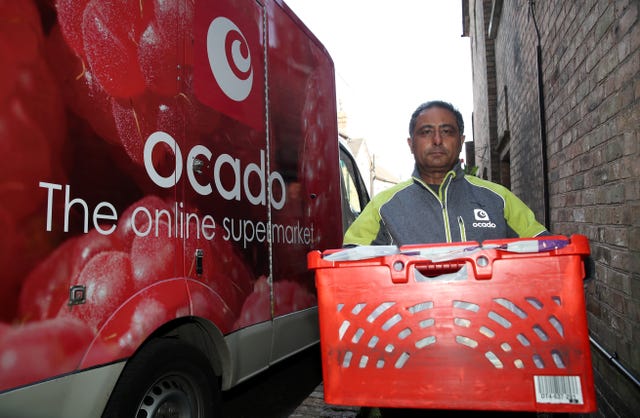Boxmakers and grocers produce new ‘stack and drop’ food boxes for self-isolated
Packaging giant DS Smith is also urging households to keep recycling to ensure there is enough cardboard, with 85% made from recycled materials.

One of the world’s largest box makers is working with supermarkets to produce a new “stack and drop” delivery system for vulnerable shoppers stuck at home during the coronavirus outbreak.
DS Smith said grocers are looking at new and unique ways for delivery drivers to avoid contact and for housebound families who need food parcels.
Bosses at the company added that with all non-essential workers in lockdown and an increase in household waste expected, it was vital to keep recycling, with 85% of cardboard in production coming from recycled materials.

Alex Manisty, group head of strategy at the FTSE 100 company, said: “The retailers needed something that allows them to do more home deliveries. It’s much better for vulnerable people because they don’t have to go out of their homes.
“Supermarket deliveries were mostly large plastic pallets. But the volume they need means they can’t make deliveries as quickly.
“They needed something stackable that could be turned around by us within a week.”
Households need to make sure they continue recycling, to keep supply going, to avoid turning to more plastic packaging, which is harder to recycle.
The strategy chief explained: “It’s particularly important that people go on recycling during this crisis.
“The infrastructure we have for making recycled paper is a very important infrastructure. It would be a nightmare for us if people decided to waste rather than recycle.”
DS Smith has also adapted supply chains to offer face masks and packaging for ventilators to avoid damage when shipped to different countries where needed most.
The UK-based business has 250 factories around the world including Italy and Spain, which have been hardest hit by Covid-19.
Mr Manisty said: “It’s quite a thing to keep factories running. We’re in Spain, the US, Italy. They’ve kept coming into work. It’s not very glamorous, but it is vital.
“It’s amazing that our Italian factories are still running. But we had to learn how to run a three-shift factory, whilst minimising the risk to colleagues.”
With shoppers stockpiling, and retailers forced to introduce limits on the number of items customers could buy, there had been fears that supplies could be hit.
Mr Manisty added: “In the early days, a week ago, there were some cross-border issues, just as governments and authorities got used to the idea that they had to let it flow. There are still delays, but nothing epic.”
It comes as the Prime Minister said a scheme to deliver free food boxes to the most clinically vulnerable would be launched as the country remains in lockdown.





